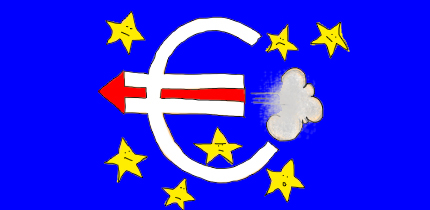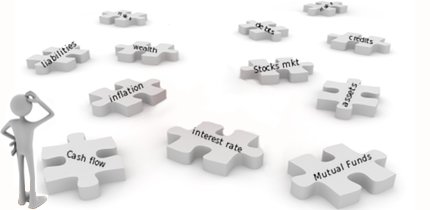By Haif Zamzam (@haifnothaifa)
Whether you want to hear about it or not, it is hard to ignore the EuroZone debt crisis over the last six months. At the beginning, the media portrayed it to be the “Greek Debt Crisis.” However, it was obvious that the problem was near boiling point and was bound to spill over the entire European landmass. Before trying to break down what is happening today, let us go back in time to understand the basics; what is the EuroZone and how did we end up in this rut?
The EuroZone was formed in the 1990s. Economically speaking, and in my personal view, Germany and France were the heavy weight champions of that bloc. By joining the EuroZone, countries like Portugal, Italy, Ireland, Greece, and Spain (collectively referred to as PIIGS) could issue debt at similar rates to German bond yields (side note: bonds are debt instruments issued to a public market; kind of like an IOU given by a borrower to a lender). So let us say for example, Ahmed is financially responsible and Ali is not. However, due to the friendship, Ali can borrow money at cheaper interest rates and easily because he is friends with Ahmed. Got it? So the idea is when the EuroZone was initiated, it was for countries like Greece to be able to borrow money at lower rates, close to German rates, to develop and progress their countries’ economies responsibly. The ultimate goal was for all of Europe to grow more powerful.

However, PIIGS got themselves pretty deep in debt recently, and they needed to borrow billions of dollars in 2010 and 2011 to make payments on the interest. Think of it as Ali struggling to pay his minimum payments on his credit card that he keeps maxing out. To make matters worse, investors are now demanding a higher yield to hold onto the debt of these countries as the risk has sky rocketed since lenders invested their capital; which is unfair to the financially responsible Ahmed, and will drown Ali in further debt. The bailout was really just a band-aid put on top of a gushing wound. To be eligible for these bailouts, PIIGS’ governments had to cut their spending (firing government workers and/or reducing pensions) and increase their revenues (by raising taxes); so Ali basically would have to cut down on his employees leaving them jobless, which in the long-run, is bad for an already struggling economy. This bailout could really be seen as the cure and the cause because looking at the PIIGS economies today, it is clear that the austerity dealings has not solved the problem in any way.
As a result of the EuroZone crisis, political parties in Portugal and Ireland have plummeted from power, and two prime ministers (of Greece and Italy) have resigned. The question remains, will the euro survive as a common currency? Allowing the economies of Greece and other states to collapse would have serious consequences for all of Europe and the rest of the world, and leaders are doing everything they can to avoid that outcome.
How does that relate to us here in the UAE? Sultan Bin Nasser Al Suwaidi, the UAE Central Bank Governor, said that the UAE’s trade and economic activities with the EuroZone are not more than 20% of our trade activities. He also went on to state that the European nations need to solve their problems which are of a sovereign debt nature and that this crisis needs time to be handled. I cannot help but notice a striking similarity between the EuroZone crisis and 2009 Dubai situation that began with the Dubai World restructuring. In any case, economists and financers are definitely writing up a storm focusing on the EuroZone and the glitch in that specific market economy while we hope for the best in 2012. The UAE’s economy is well-positioned to be able to ride this wave but please remember to save save save. Cut the fat in unnecessary spending bearing in mind that hope alone is not a strategy.
22nd Issue – January 2012
Here We Start – Art of Living 101 – Beyond Inspiration
Blunders of a Wanna Be Entrepreneur – Community Talk – Scenes from Life
Sense and Sustainability – Too Blunt For Words – To The Point



